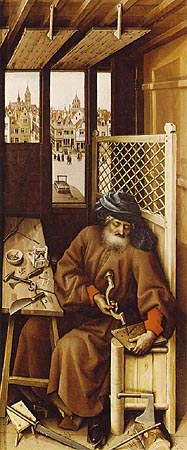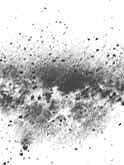
''the cross
of the Lord was a mousetrap
for the Devil''

Times Newspapers Limited, August 5, 1999
Copyright 1999 Times Newspapers Limited
The Times (London)
August 5, 1999, Thursday
SECTION: Features
LENGTH: 925 words
HEADLINE: Sinner, saint and master
of wordplay
BYLINE: Peter Ackroyd
BODY:
His vivid dialogue and writings were religion expressed as genius but Saint Augustine
had an exacting and tortuous life. SAINT AUGUSTINE.
By Garry Wills. Weidenfeld & Nicolson, Pounds 12.99. ISBN 0 297 84281 1.
Pounds 10.99 (free p&p) 0870 160 80 80
He was born in North Africa in 354, and the "High God" Jehovah haunted
his imagination; more pertinently, perhaps, Augustine
grew up within the Roman Empire. His parents spoke only Latin to him, and he
seemed destined to a career as an imperial bureaucrat. But if his parents were
determined to educate and to mould him, what model would they choose? He was
African but, more importantly, he was a Roman. He was influenced by the
Donatists and their inflamed fundamental Christianity, but in the forum of his
town there were statues to the pagan gods.
His education was classical and literary, with rhetoric at its centre. It marked
him deeply, and much of his subsequent writing was designed to integrate pagan
or classical learning with Christian revelation and thus to demonstrate how the
City of God might exist within the Earthly City.
Before he could become a saint, however, he must be a sinner. In this context
Gary Wills's Saint Augustine
makes the important point that Augustine's
Confessions (which this biography significantly renames The Testimony) is
irradiated with allusions to Genesis, so that in relating his autobiography Augustine
is rehearsing the original sin and Fall.
That is why the famous journey to Carthage, where he burnt so intensely,
revealed his dual nature - an idealist yet apparently an urbane one. He was
interested in Christianity but distracted by pagan rationalism as well as being
half in love with the mysteries of Manichaeism. For nine years, in fact, he
remained a member of that heretical cult obsessed with the evil of the world.
He became a schoolmaster, but his genius kept on breaking through. He travelled
to Rome, where he was appointed court orator, and then to Milan where he
converted to Christianity. He had become a rhetorician even as he turned towards
Christian grace. Formerly he possessed a concubine, but now he was drawn to
celibacy. On these and other themes he wrote soliloquia, based upon the form of
the Platonic dialogue but one in which he spoke only to himself.
The Confessions is not some 20th-century exercise in psychological exploration,
therefore, nor is it a case of Proustian recollection; it is a theological work,
based upon a highly complex symbolic numerology. He does not find the inner
meaning of his life in terms of such intellectual claptrap as
"repression" or "sublimation", but in the context of the
eternal struggle between human pride and divine grace.
Although he first wrote dialogues, in which essentially he was talking to
himself, there were other interlocutors. He was always part of a community,
whether of neo-Platonists or Manichaeans or Christians. This "bond of
company" was always part of his character. He was no hermit but one who
employed all his rhetorical and polemical skills in order to change the human
world.
On his return to Africa, and during his residence in Hippo, he began his
ministry. He taught by means of sermons which were, in Wills's words,
"vivid and earthy", filled with "puns, wordplays, jingles".
He once compared the Cross
to a mousetrap,
with the body of Christ as a bait to tempt the Devil. His great polemics,
however, were directed against the Donatists, an African form of Christianity
manifesting a twin obsession with fundamentalist piety and with martyrdom.
He berated them; he ridiculed them; he satirised them. In that sense Augustine
is always an exciting writer - a living writer, whom Wills variously compares to
Philip Roth, G.K. Chesterton, Jesse Jackson and Matthew Arnold.
At the age of 41 he was ordained a bishop. But after the capture of Rome by
Alaric, an apprehension of disorder or disintegration entered Augustine's
hitherto settled world. As a result he outlined what Wills calls a "theory
of suppression" in order to deal with heretics, and has the unhappy
distinction of being regarded in some quarters as the philosopher of the
Inquisition.
Yet the fall of Rome brought forth less bitter fruit in The City of God, where Augustine
suggested that the pagan world had in the end to be completed and transcended by
Christian revelation. Rome must fall in order that Christ might live. Of course
this great book cannot be interpreted in quite so simple a fashion. Indeed, the
complexity of saints and sinners, living inextricably together in the world, is
one of that book's central themes. The historic Church is obliged to live in
time while aspiring towards eternity; everything in this life is uncertain.
And so, too, was the life of Augustine
himself of which the last 15 years became "a quagmire in which he would
thrash about" in an unending struggle with the British heretic Pelagius. He
died in Hippo while that city was under siege, itself an apt metaphor for his
own exacting and tortuous life in the world.
Saint Augustine
is one of a series of short biographies designed in part to counter the
tradition of the elephantine volume. It is in that sense an essay, with the
added advantage in this case of simplicity and lucidity. Its brevity means that
it can only be the first, not the last, word on its subject. It cannot rival
Peter Brown's magnificent Augustine
of Hippo, published 32 years ago, but as an introduction to a complicated and
inspiring subject it is a thorough success.
Add
info here.
A Return to the Galaxy:
